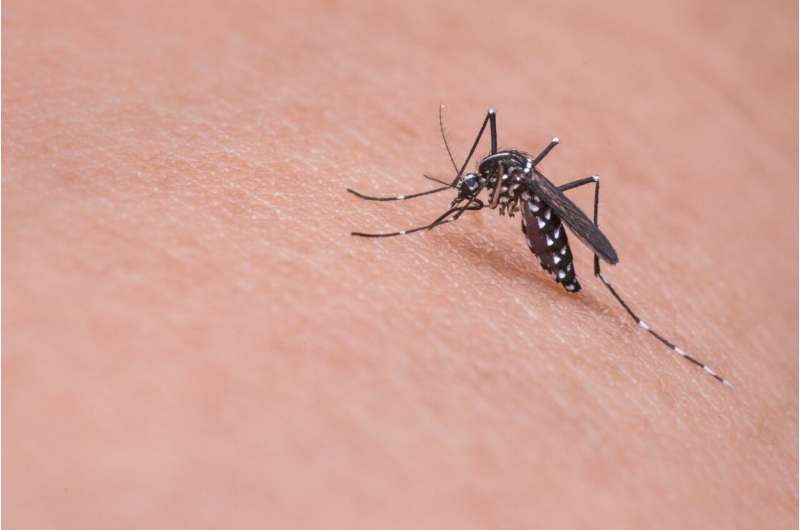Credit: Pixabay/CC0 Public Domain
Do you ever feel as if mosquitoes are always biting you and seem to target you? It may be because of your smell, a new study says.
Mosquitoes are one of the most dangerous creatures on the planet, contributing to the spread of deadly diseases like malaria, which kills hundreds of thousands of humans every year. There are even mosquitoes that "prefer to bite people."
But for some people, mosquitoes seem to attack more frequently than others. There are numerous theories about why that might happen, such as blood type, what type of clothing someone is wearing, or bacteria on skin, but none have ever been scientifically proven to be the cause.
A study published in the peer-reviewed journal Cell Oct. 18, however, details how the production of a chemical tied to smell makes some people mosquito magnets, and it may be something they will have to deal with for the rest of their lives.
Researchers came to their conclusion in the three-year study by having eight participants wear nylon stocking over their arms for six hours a day on multiple days to pick up their skin scent. After the stockings were worn, they were placed at the ends of separate long tubes, and Aedes Aegypti mosquitoes—one of the most common carriers of lethal diseases—were released to see which tubes they would pick in a round-robin tournament-like experiment.
By the end, researchers made an alarming discovery: One of the participants, Subject 33, was four times more attractive to mosquitoes than the second-place participant and 100 times more than the least appealing participant. Any time the participant's nylon stocking was pitted against another, the mosquitoes were always drawn to Subject 33.
To see if that response was just an outlier, researchers got another 56 people to join in the study, but mosquitos still stayed loyal to Subject 33.
After the so-called tournament was over, researchers examined the chemical compounds of each participant and noticed the ones who were mosquito magnets produced carboxylic acids, used by bacteria on human skin to produce unique body odors, at much higher levels than others.
"There's a very, very strong association between having large quantities of these fatty acids on your skin and being a mosquito magnet," Leslie Vosshall, study author and neurobiologist at Rockefeller University in New York, said in a statement.
Vosshall added that this wasn't the goal of the study: The hope was that a mosquito would lose attraction to humans or not be able to tell the difference of subjects.
"Yet that was not what we saw. It was frustrating," she said.
By testing the same people over multiple years, the study showed that these big differences stick around, Matt DeGennaro, a neurogeneticist at Florida International University who was not involved with the research, told The Associated Press.
"Mosquito magnets seem to remain mosquito magnets," DeGennaro said.
Though the researchers were not successful in their goal, their findings could pave the way for how to make mosquito repellents. The only way to change someone's odor, the researchers say, is to manipulate skin microbiomes; and, if possible, slathering the skin of someone like Subject 33 with the compounds of someone not as attractive to mosquitoes could help the person avoid being bitten.
Journal information: Cell
(c)2022 USA Today
Distributed by Tribune Content Agency, LLC.
























